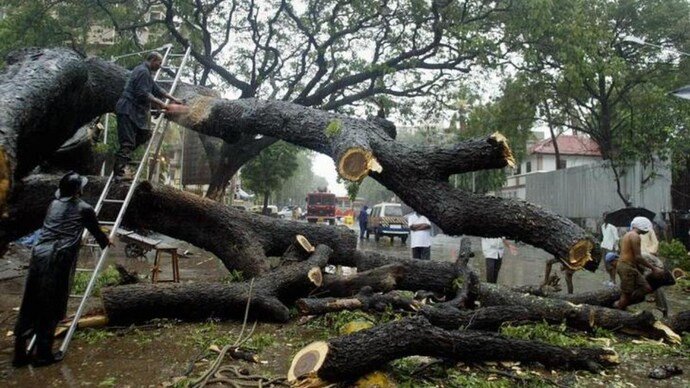The Metro-3 line, extending from Colaba to SEEPZ via Bandra Kurla Complex, was granted permission to remove 3,772 trees for its construction.Of these, 3,093 trees were removed, while 679 were preserved at their original locations. Now Mumbai Metro Rail Corporation Limited (MMRCL) has come under fire for its tree planting efforts along the Metro-3 route.
Concerns have been raised over the exorbitant cost per tree and the low bidding amounts for the tenders, casting doubts on the quality of maintenance. The controversy erupted after MMRCL revealed that it had spent a staggering ₹12.01 crore on planting and maintaining 584 trees along the Metro-3 route. This translates to an average cost of ₹2 lakh per tree, a figure that raised eyebrows among activists and environmentalists. However, subsequent revelations have further fueled the controversy. MMRCL later clarified that the ₹12.01 crore was allocated for three separate tenders covering a total of 2,931 trees, bringing the average cost per tree down to ₹41,000.
Even at this revised figure, the cost remains significantly higher than the rates charged by the Brihanmumbai Municipal Corporation (BMC) for tree planting and maintenance. Activists argue that the inflated costs could indicate a lack of transparency and potential corruption in the tendering process. An RTI reply obtained by advocate Godfrey Pimenta revealed that the winning bids for the tree planting tenders were substantially lower than the estimated tender costs. One agency, M/s New Park Sun Gardens, offered a bid that was 31.59% lower than the estimated cost, while another, M/s Hiravati Enterprises, bid 3.60% and 8.36% below the estimated costs for two separate tenders.
These low bidding amounts raise concerns about the quality of the tree planting and maintenance work. Activists fear that the agencies may compromise on the quality of trees, planting techniques, and aftercare to meet the low bid prices. The controversy has highlighted the need for greater transparency and accountability in public spending, particularly when it comes to environmental initiatives. The MMRCL must provide detailed explanations for the high costs and justify the rationale behind awarding tenders to companies that bid significantly below the estimated costs. Furthermore, it is essential to ensure that the trees planted along the Metro-3 route are properly maintained and cared for to ensure their long-term survival and contribution to the city’s green cover. The MMRCL must establish robust monitoring mechanisms to track the health and growth of the trees and take corrective measures if necessary.



